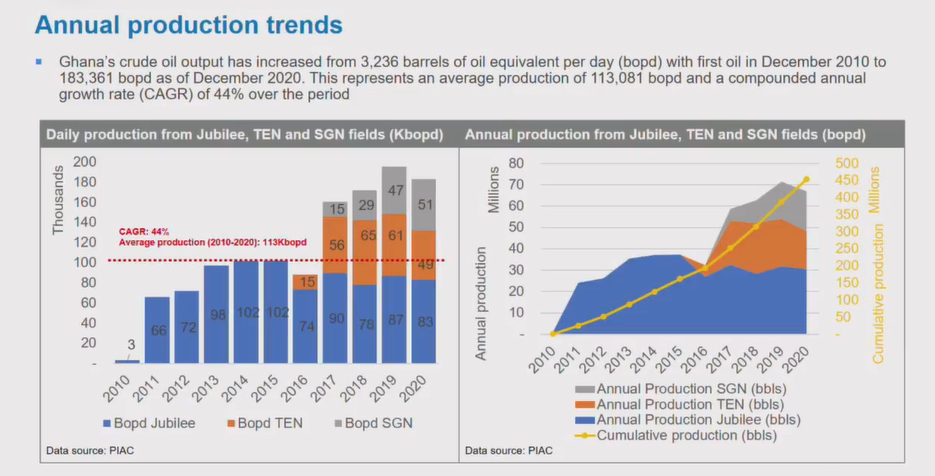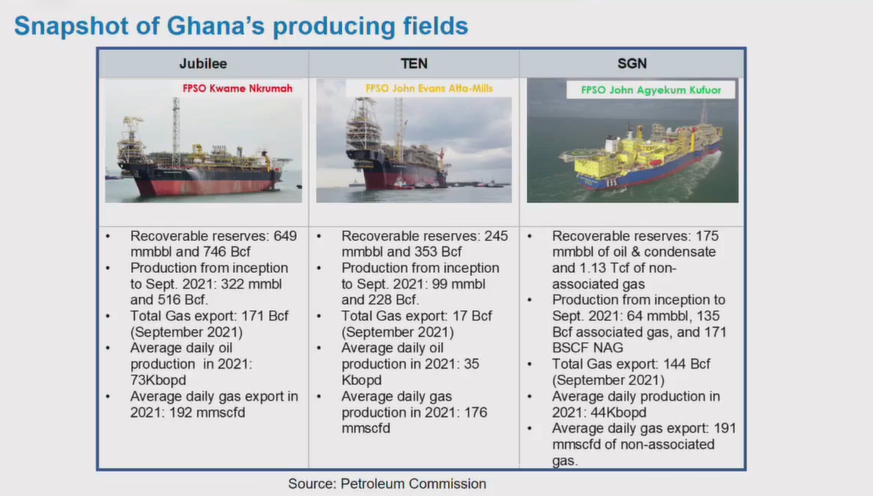Economist and political risk analyst, Dr Theophilus Acheampong, has disclosed that since Ghana started producing oil in 2011 till date, the country has been able to generate a little over $31 billion.
Over the 10 year period, Mr Acheampong noted that out of the total value of all the oil it lifted, Ghana has earned $6.5 billion.
He explained that: “What we did was take the oil price figures for each of the years and then take the production. We know that the value is two things – the volumes and the price.”
To put his submission into context, he said “all of Ghana’s economy, as we speak currently is only worth about $74 billion. So in the 10 years, roughly about 45 per cent of the oil extracted amounts to $31 billion. Of this $31 billion, Ghana as a state, has earned 6.5 billion.”

Mr Acheampong made the revelation on Wednesday while at a public lecture organised by the Public Interest and Accountability Committee (PIAC) to discuss how Ghana has managed its petroleum revenue.
The lecture, held at the Cedi Conference Centre of the University of Ghana, Legon, was on the theme ’10 Years of the Management and Use of Petroleum Revenues in Ghana: The Way Forward.’
The economist explained that in an early assessment, the forecast was that the Jubilee field, where the FPSO Kwame Nkrumah, a floating production storage and offloading (FPSO) vessel operates, was going to be producing 120,000 to 140,000 barrels a day by the time production came on-stream.

“What was quite clear when we spoke to a number of the stakeholders is the fact that in their view, it looked as though the development of Jubilee was rushed. So we used about two and half to three years to bring Jubilee on production and subsequently when production started, because of what looked like a rush development process, there were some problems with the wells.”
“So we had to spend more money and remedy those problems,” he added.
On the distribution of the money earned, Mr Acheampong said the Annual Budget Funding Amount (ABFA) has been allocated the highest amount of $2.6 billion over the period. The Ghana National Petroleum Cooperation (GNPC) received $2 billion.
“Also, the Ghana Stabilization Find (GSF) has received $1.39 billion of total revenues, whereas the Ghana Heritage Fund (GHF) has received $586 million of the total allocation,” he said.
According to him, Ghana’s crude oil output has increased from 3,236 barrels of oil equivalent per day (bopd) with first oil in December 2010 to 183,361 bopd as of December 2020.
Meanwhile, Mr Acheampong has said the overall institutional assessment of government agencies involved in petroleum revenue management has been satisfactory.
However, he said “the only exception was the Investment Advisory Committee, which by law is meant to advise the Minister on the instruments that we put Ghana petroleum funds to. There were some years that the Committee was constituted and some information were bit dated and not forth coming.”

He predicted that although Ghana’s three fields (Jubilee, TEN, SGN) peaked in 2020, which is to last for three years, there would be a decline if nothing is done by way of new in-fill developments on the existing fields or new fields coming on-stream.


